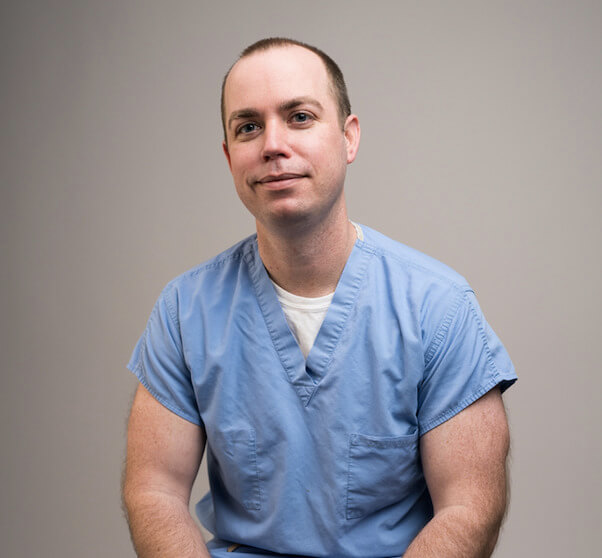Cognitive Dissonance
The most difficult thing was healthy people dying needless deaths.

Tim Ehle, MD
I’ve been working critical care for just over two years now. Prior to that, I worked primarily in pulmonology in the clinic. When I took this intensivist position, I had been here for maybe a few weeks and then we started hearing about COVID.
Almost the entirety of the time I’ve been working in critical care has been with COVID.
Tim Ehle, MD, Intensivist
Early in the pandemic, the hardest part was the fear of dying from this virus, because we just didn’t know. Then, as the pandemic went on, the most difficult thing for me was otherwise healthy people dying needless deaths. That was by far the hardest thing. When people died prior to there being a very safe and effective vaccine, that was of course difficult. But at the time you said, ‘this is a terrible virus, but we did everything we could.’ When that happened to people after we had a vaccine that was extremely safe and effective at preventing death and severe disease – that was really hard.
It’s tough to reconcile not taking a vaccine, but then coming to the hospital and letting me put a tube in your lungs, lines in your arteries and veins, chest tubes in you, and have you take four sedatives, multiple vasopressors and antibiotics. To be okay with that, but not a vaccine…that kind of cognitive dissonance is just astounding. But, we continue to see it unfortunately.
This has taken a toll on everybody. From our nursing staff to respiratory therapists – there’s only so long they can do that sort of care. Our staff has taken a beating. So I’m hopeful for a brighter future because we really need it.


Thank you for the care your provide for critical care patients and the ongoing outreach you provide here in Sauk Centre.
Thank you Dr Ehle.
Thank you for sharing your story. Can’t imagine the challenges direct care providers/staff have faced.
Thank you for your courage to say what many are thinking.